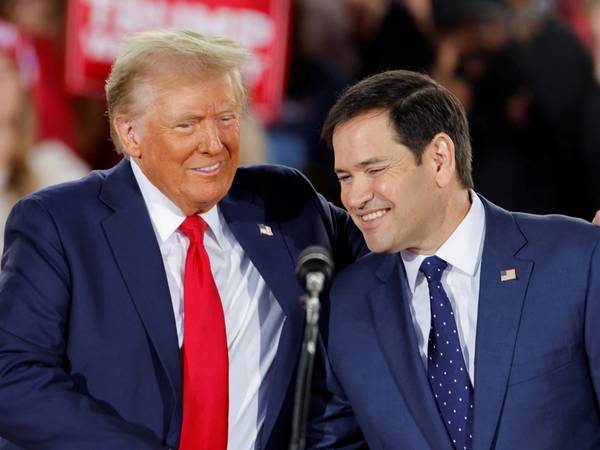The incoming administration of Donald Trump has revealed little about their policy toward Iran, with many in Washington debating the next moves on sanctions, the nuclear issue, and Tehran's broader role in global stability.
On Thursday, I had a brief encounter with Trump’s pick for Secretary of State, Senator Marco Rubio, in the halls of the Senate Russell Building. When asked about the United States’ current sanctions on Iran, Rubio offered a succinct justification.
“If Iran didn’t flow money to terrorist groups, there would be no sanctions,” he said, stressing his belief that the Iranian regime prioritizes its geopolitical ambitions over the welfare of its citizens. “I see no evidence that the regime spends the money they generate for the people of Iran,” he added.
I also pressed Rubio on what an acceptable nuclear deal with Iran would look like. “We will discuss that once I’m confirmed,” he said, citing his pending confirmation as state secretary.
Senator Rubio’s comments suggest that the administration may be recalibrating its approach to diplomacy with Tehran, but the specifics remain tightly guarded.
Last week, Representative Michael Waltz highlighted the broader geopolitical stakes of Washington’s “maximum pressure” campaign against Iran. Waltz framed Iran’s influence as extending beyond the Middle East, impacting other theaters of global conflict.
“Maximum pressure, not only will it help stability in the Middle East, but it’ll help stability in the Russia-Ukraine theater as well, as Iran provides ballistic missiles and literally thousands and thousands of drones that are going into that theater,” he said.
These comments shed light on some key aspects of the Trump administration’s approach to Iran on three tiers:
1. Domestic
Rubio’s criticism of Tehran’s resource allocation underscores a broader narrative within US policy circles: that the Iranian government prioritizes its ideological and military goals over improving the lives of ordinary Iranians. This rhetoric not only justifies sanctions but also seeks to build moral justification for US policies.
2. Regional
Rubio’s remarks indicate that sanctions are unlikely to ease as long as Iran continues to support groups like Hezbollah and Hamas. The administration’s hardline stance suggests a belief that financial isolation could force Tehran to reconsider its regional agenda.
3. Global
Waltz’s comments highlight an emerging perspective that Iran’s activities are no longer confined to the Middle East. The administration appears to view Tehran as a destabilizing force in the Russia-Ukraine conflict, through its provision of drones and missiles. This framing links Iran policy to broader US strategic interests in Eastern Europe, potentially broadening the case for continued pressure.
And the nuclear question
Top on the Trump team’s list of priorities when it comes to Iran is, of course, the country’s nuclear program. Rubio’s reticence on the issue suggests that the administration may still be formulating its approach. While the specifics remain uncertain, any future negotiations would likely focus on verifiable limits to Iran’s nuclear capabilities, coupled with measures to curb its missile program and regional influence.
The Trump administration’s Iran strategy continues to evolve, but its broad contours reflect a commitment to economic pressure and containment. Comments from Rubio and Waltz signal a focus on curtailing Iran’s regional and global influence, tying these efforts to broader US interests.
As the administration moves forward, it remains to be seen how these priorities will translate into concrete policies, particularly on the nuclear front. For now, the Trump team is keeping their cards close to their chest.
